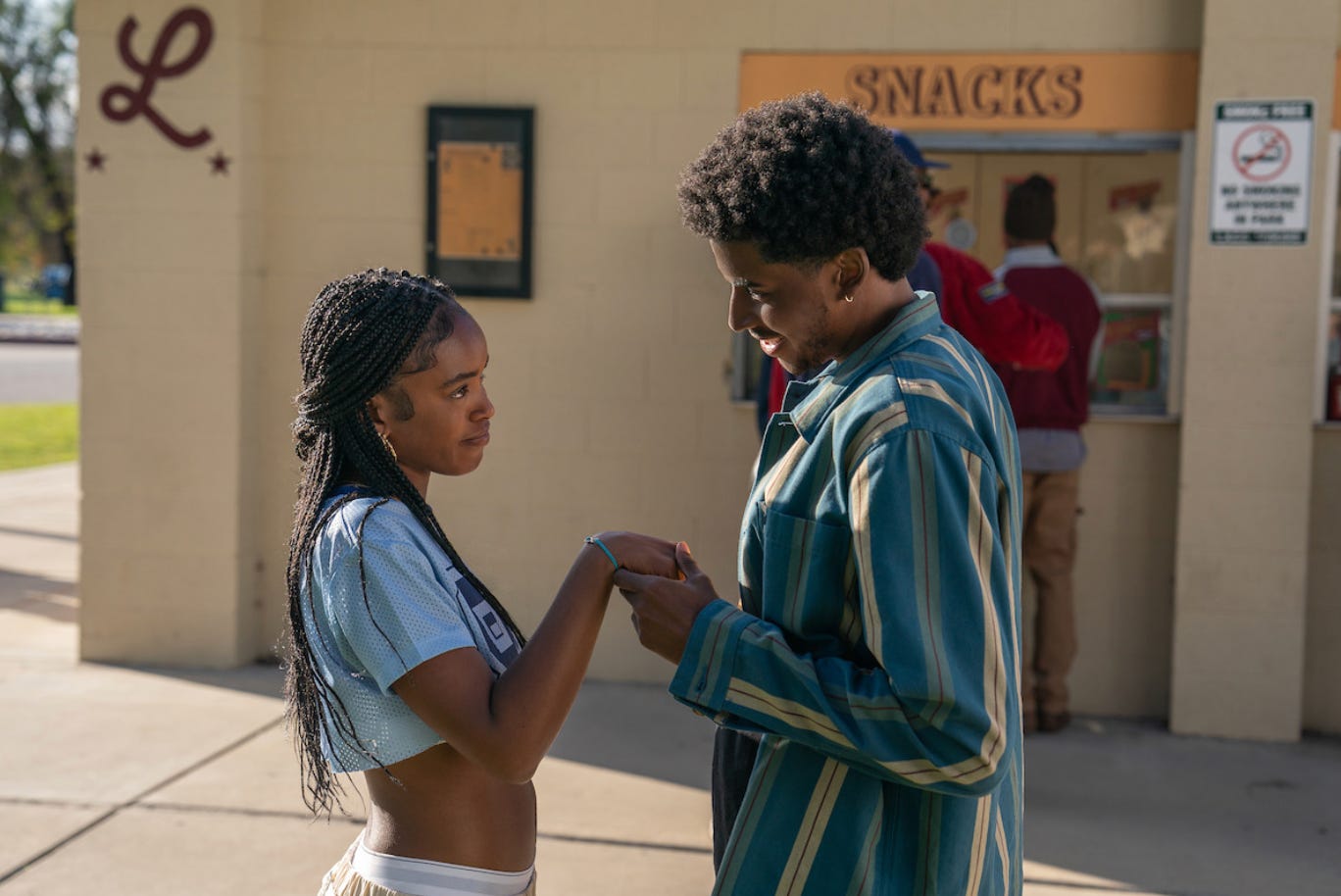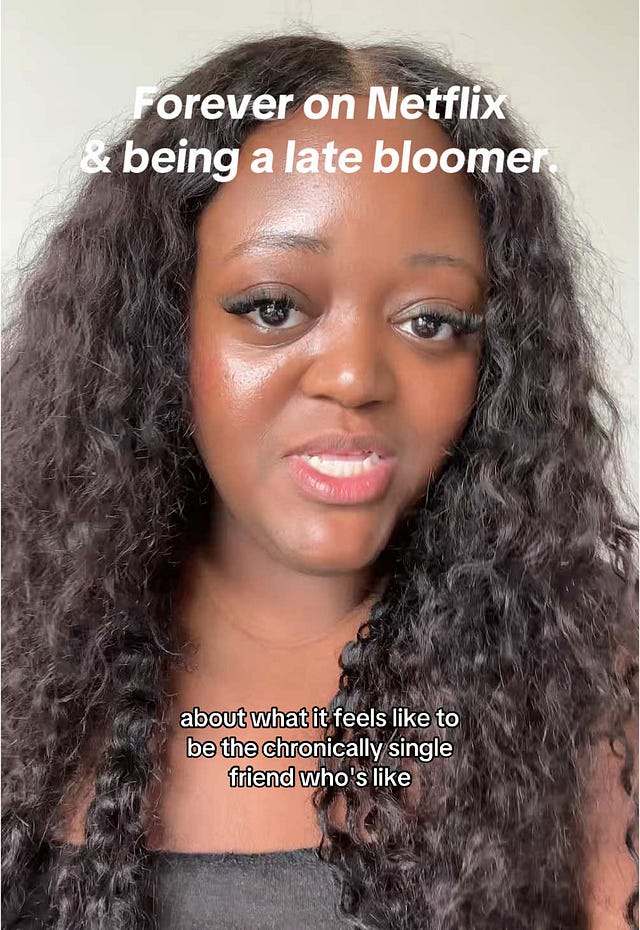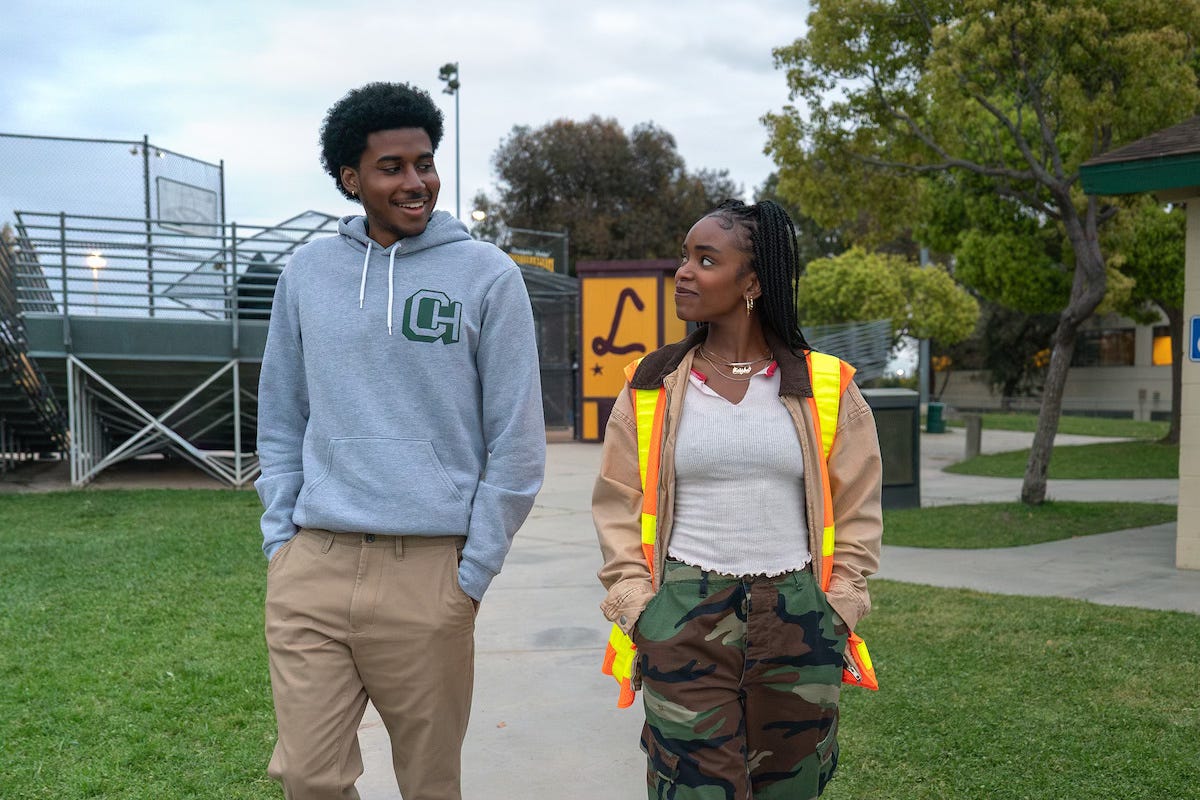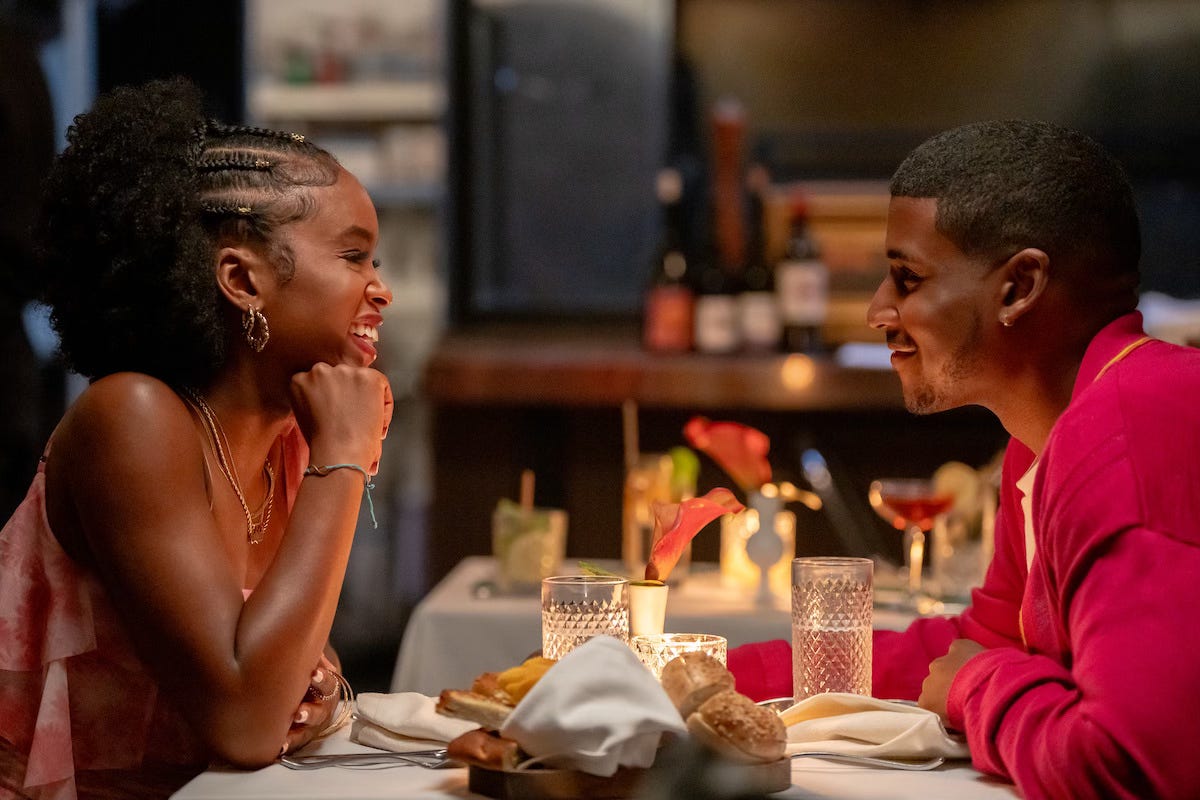Mara Brock Akil's 'Forever' Helped Me Grieve a Lost Part of My Adolescence
The 8-episode Netflix series expertly displayed all the ups and downs of teenage love, ushering in a wave of healing and acceptance for everything I didn't experience
Hello,
Welcome back to my newsletter — my safe space to talk about all the things on my mind in entertainment and pop culture. As many of you know, I’ve started a new position at PEOPLE Magazine and have been there for five amazing months. Being at one of my dream publications has caused me to rethink my approach to The Diamond Report, which is why I’ve been away for so long.
While the structure may change, the premise remains the same. Please enjoy the first edition of The Diamond Report: TV Digest, which will house all of my thoughts on my favorite and latest television obsessions.
Mara Brock Akil’s Forever, which follows Lovie Simone’s Keisha Clark and Michael Cooper Jr.’s Justin Edwards as they navigate the highs and lows of young love, was nothing short of a beautifully written and directed masterpiece. And, at the same time, it caused me to — once again — confront a pain of my past.
The following story will contain spoilers for Netflix’s Forever.

The 8-episode Netflix series is undeniably a hit (with absolutely zero notes from me). Akil expertly showed the ups and downs, highs and lows and twists and turns that are typically associated with not only the growing pains of love at a young age, but simply just life in general as a teenager. She crafted complex, relatable characters that were able to feel and love unapologetically.
The Northwestern University alumna (shout out to my fellow Wildcats!) didn’t shy away from or ignore the reality of growing up as a Black person in America. However, she didn’t make it the center of the story. She brought out the light and joy, and yes, the messiness, of teenage emotions without belittling them. She showed the true essence of being young, validating all of the pressure, heartache, love and anger of adolescence.
There’s so many wonderful things that I can say about this show, from the magnificent display of Black fatherhood, motherhood, joy, love and affluence to the revolutionary storytelling and filmmaking. But, even beyond that, the show offered me so much more.

 Tiktok failed to load.
Tiktok failed to load.Enable 3rd party cookies or use another browser
As I was watching Forever, I had this nagging feeling inside of me, and if I’m being completely honest, I also felt it in the days leading up to its release. It was a longing for the young love I so desperately wanted growing up, but never got the chance to experience.
Being a “late bloomer” comes with so many emotions and mental battles. It’s an experience that is so hard to describe and/or put into words, but it has such a lasting impact on a person. I wish I could say that since I bared my soul in my personal essay for ESSENCE GU that I’ve somehow evolved, healed or graduated from the pain of it all. But, if I’m being quite honest, I don’t think it ever went, or will ever go, away. And, in watching Forever, a new layer to it came to the forefront of my mind.
The realness and authenticity of Justin and Keisha’s relationship, from their initial meeting through their intense love to their separation with the lingering promise of forever, filled with me with the same level of sadness as it did happiness.

The recklessness and beauty of teenage love is something that I’ll never be able to experience, and that fact hit me hard. As I maneuver through life in my 20s, I find myself constantly wondering things like: Was It Me? What Am I Doing Wrong? Am I prepared for actual adult romantic love? What can I change about myself? Should I smile more? Go out more? Dress differently? Wear more makeup? What will my first heartbreak feel like? Am I running out of time? Is this going to be my reality forever? Will I ever be loved in this way?
In her TikTok video about watching the series as a “late bloomer,” content creator Christelle described this exact feeling. She noted that while she knows all of the amazing qualities that she possesses as a person, it doesn’t change the reality that everyone with this shared experience knows all too well.
“I know that I’m beautiful inside and out. Creative, kind, funny, charming, witty, talented, and I could go on and on, but it’s like everybody gets to go through life knowing or having some type of external validation that they’ve been somebody’s crush, that they’ve been … chosen,” she said. “When you’re forced to go through life without that, it’s like ‘Okay. Okay. Make peace with it. Oh, I’m protected. Oh, I’m not missing anything. Oh, I don’t want to experience anything because it’s just nothing but bad.’”
“It’s just like everybody gets to say that, while they have their 10 freaking boyfriends going on their 50 dates, like I don’t know sometimes it just feels like it’s just never gonna happen,” she added.

Everyone tells people who haven’t been exposed to romantic love in their teens that they dodged a bullet or that their time will come or that they have to love themselves first or that they are lucky to have avoided it all. And, all of those comments may be positive, possibly true and logical. However, in the moment, they hurt even more and represent the exact reason that this experience is so hard to explain for those who have never experienced feeling unwanted.
Unintentionally, these statements create this isolating experience, where a “late bloomer” feels crazy for focusing on this one small aspect of life, especially when there’s more important things to focus on. It makes them feel like they are complaining too much or being too whiny. It invalidates all of the very real and valid emotions that they are feeling.
While in their mind, they know that their loved ones are just trying to help and provide comfort, it ends up making them feel even more isolated and more alone. Sometimes, all they need is a hug, a shoulder to cry on or for someone to listen to them. They need a safe space to feel every single thing that they are entitled to feel. And, that’s the true superpower of this show.
After watching Forever and sitting with it, I began to see other “late bloomers” share their emotions on social media. While Akil’s hit romance series may remind people of their first love or fill a space that Black people craved on television, I think she also unlocked a safe space for me, along with many of my fellow “late bloomers,” to grieve the young love I thought I was going to have. The show gifted me the ability to hear from others, like Christelle, and begin to mourn the loss of my ideal teenage life.
Everything is not just suddenly okay. There’s no magical trick to healing and I’m certain that the feelings will come up again, but something about the magic of Forever pushed a needle forward for me. Something about this show opened a door and gave my younger self a voice. Something about the series helped me realize I’m not crazy for feeling the way that I do and gave me comfort in knowing that others are giving themselves the grace and space to accept their pain. It validated my experience and curated a space for me to grieve that loss.
And for that, Mara Brock Akil, my fellow Northwestern University Medill School of Journalism alumnae, I am Forever grateful.
Stay connected with me on Instagram, X (formerly Twitter) and LinkedIn. You can also check out my latest stories by clicking the link below or visiting my author page on PEOPLE.com.




